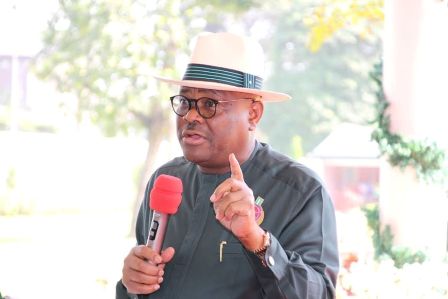Editorial
Unity, Reconciliation In Rivers

Last Thursday, Rivers State Governor, Chief Nyesom Wike, again, drew the attention of Rivers people to the need to promote unity and reconciliation amongst themselves in the State.
The Governor, who spoke through his Chief of Staff, Engr. Chukwuemeka Woke, during the 20th Ikwerre National Day of Thanksgiving, 2019, at the State Ecumenical Centre in Port Harcourt, recalled that his administration started, and practically promoted reconciliation and unity after the last general elections by withdrawing murder charges preferred against some politicians on the other political divide.
Said he: I call on all Rivers people to work towards unity and reconciliation this Christmas season. In unity, we will advance the frontier of development of our state. As a Government, we have started promoting reconciliation to foster unity”.
The Tide recalls that shortly after being declared winner of the 2019 governorship elections, Governor Wike, in a statewide broadcast, called on the Minister of Transportation and leader of the All Progressives Congress, APC, in the state, Rt. Hon Chibuike Rotimi Amaechi, to put an end to all forms of political contentions and join hands with him to develop the state.
To further demonstrate his commitment to foster unity, peace and progress of the state, Wike directed the State Attorney General and Commissioner for Justice to review all pending criminal proceedings filed against any person by the State and directly related to political activities prior to the 2019 general elections and make appropriate recommendations to him for necessary action to promote reconciliation,and pledged to form an all-inclusive government to advance the collective interest of all the people, irrespective of party, ethnic or religious affiliations.
While we applaud Governor Wike’s burning desire to foster unity and reconciliation amongst the people, we are elated by the Governor’s assurance that he would continue to advance unity and reconciliation through programmes and projects with emphasis on his administration’s commitment to the state-wide roll out of projects across the 23 Local Government Areas of the State.
We acknowledge the even spread of key projects across all Local Government Areas of the State as part of his commitment to an inclusive development of the State. We equally welcome the decision of the state government to extend the Saakpenwa-Bori Road to Kono and the progress of work on the Ogoni-Andoni-Opobo-Nkoro Unity Road.
The Tide salutes the resilience and visionary leadership of Governor Wike that has prompted the bold move to initiate the pathway to peace, security and speedy development of Rivers State. No doubt, Wike’s extension of hands of fellowship to his political opponents confirms his penchant for peaceful coexistence and furtherance of a united indivisible Rivers State.
We agree no less with the Governor that now that every contention concerning the election was over, the task of building the State must take precedence over all other group or individual considerations. Rivers State has accomplished a lot to be proud of under the leadership of Governor Wike.
However, there is still a lot more to be done to advance and realise the ultimate dream of the founding fathers of the State. Indeed, the time is now for the various political gladiators in the State to take stock, have a deep introspection and embrace peace in the collective interest of the State.
We therefore join Governor Wike to call on Rivers leaders from all the ethnic nationalities and political interests to take deliberate steps to promote the unity of the State, while we enjoin the state government to keep to its promise of delivering of the three key Flyover Bridges in Port Harcourt in record time in order to resolve traffic congestion in Port Harcourt.
Editorial
AFCON ’25: Bravo, Super Eagles, But…

Editorial
Fubara: Celebrating A Leader At 51

Editorial
Beyond Accessing Bonny By Road

-

 Politics4 days ago
Politics4 days agoPFN Rejects Call For INEC Chairman’s Removal Over Genocide Comments
-

 Rivers4 days ago
Rivers4 days agoFasthire, PHCCIMA, CIPM Host CareerFest 2026 In PH
-

 Sports4 days ago
Sports4 days agoEnekwechi wins Orlen Cup in season opener
-

 Politics4 days ago
Politics4 days agoHoodlums Disrupt LP-ADC Defection Event In Lagos
-

 Sports4 days ago
Sports4 days agoFalconets, Senegalese Lionesses arrive Ibadan for qualifier
-

 Sports4 days ago
Sports4 days agoSimba open Nwabali talks
-

 Politics4 days ago
Politics4 days agoRemoval From INEC’s Portal, Abure-Led LP Faction Mulls Legal Action
-

 Niger Delta4 days ago
Niger Delta4 days agoTinubu, Jonathan, Diri Pay Last Respect To Ewhrudjakpo

